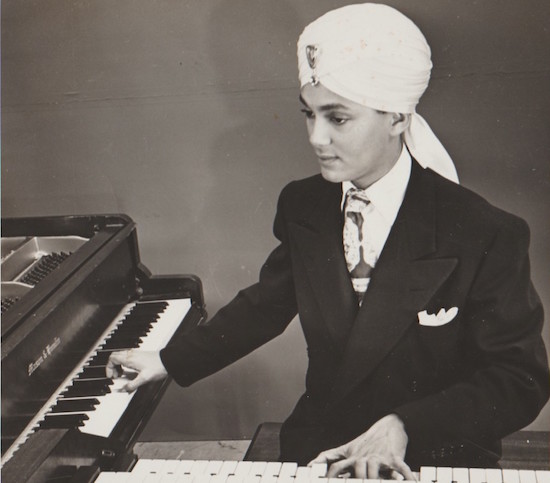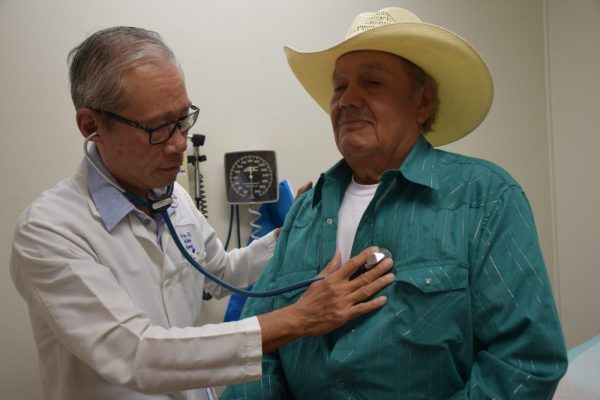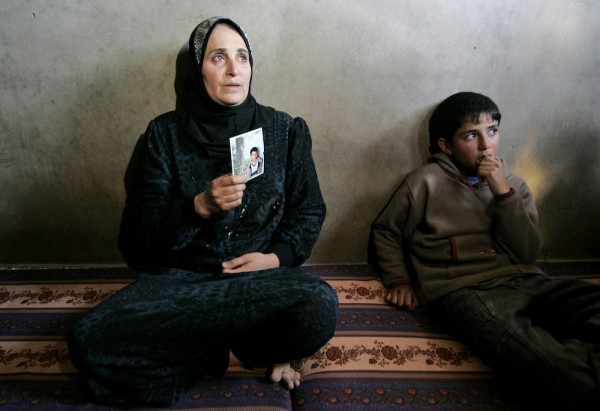In 2016, writers of Zócalo essays took us inside a dry cleaning business in South L.A., admired the ingenious mosaics created by a Chicago artist to fill the city’s potholes, sampled Minnesota soul food, and introduced us to the black man from Missouri who became America’s first “Indian” TV star.
Picking favorites among the hundreds of essays we publish each year is hard—and dangerous, because you don’t want to leave anything delicious out. But after quite a bit of thought and re-reading, the 12 essays below stood out because they felt even fresher and more powerful today than when we first published them weeks or months ago.
How the Politics of Resentment Corrupted Wisconsin’s Culture of Nice
Way back in April, Katherine Cramer, a University of Wisconsin political scientist and author of The Politics of Resentment: Rural Consciousness in Wisconsin and the Rise of Scott Walker, saw where the American elections were going through the lens of her home state, long before the rest of the country did. She shared her research, based on years of conversations with people in smaller towns and rural areas, about their anger at being left behind in an increasingly urban America. If you’d read Cramer’s essay in the spring, you wouldn’t have been surprised by the results in fall—especially in Wisconsin.
“Frivolous” Humanities Helped Prisoners Survive Communist Romania
Irina Dumitrescu, who teaches medieval literature at the University of Bonn, offers a beautiful personal essay about how her own path in life, starting as a Romanian immigrant to Canada, and how her translation of Romanian memoirs of the gulag taught her the value of the humanities. As Dumitrescu observes in the piece, “if the study of literature or history were really that pointless, a government trying to control the minds of its subjects would not go to the trouble of putting humanities students and professors in jail.”

From “America’s First ‘Indian’ TV Star Was a Black Man from Missouri” by John Turner
America’s First “Indian” TV Star Was a Black Man from Missouri
John Turner, a biographer and documentarian, tells the remarkable story of Korla Pandit, who, stymied by Hollywood racism, reinvented himself as a mystical Brahmin pianist. “The way he came to fame,” Turner writes, “is one of those only-in-America fables where the audience and the performer are both invested in the illusion.”
Witty Mosaics Offer a Beautiful Solution to the Pothole Problem
Mosaics, made of small bits of stone and glass fixed with mortar, are as durable as any asphalt. So why not use them to fix broken streets? Our Glimpses photo essay, accompanied by a short essay from Zócalo’s own Siobhan Phillips, shows the whimsical—and sturdy—mosaics that Chicago artist Jim Bachor created to fill some of the city’s many potholes.
Why It’s OK to Laugh About ISIS
Shazia Mirza, a British comedian of Pakistani Muslim descent, describes how she stands up to terrorists—and to right-wing critics—by joking about the absurdities of ISIS. “Now it’s time for Muslims to be funny,” she writes. “Let us fight our own war on terror with laughter—it may work even better than the bombs.”
Tater Tot Hotdish, Minnesota Soul Food
Ah, the comfort of the casserole. As a Minnesotan expat, novelist, and author Lori Ostlund pens an essay that hits home—perceptively picking up on her home state’s odd formality, emotional restraint, practicality, and the (hot) dish that captures it all. “I spent several years working toward a career in academia,” Ostlund writes, “engaged in the sort of critical analysis and textual parsing that would have had me discussing hotdish as a metaphor of community mingling, ingredients coming together to create a pragmatic citizenry where individual differences are buried beneath a blanket of cream of mushroom soup.”

From “The Heroin Epidemic Is Turning My Soup Kitchen Into an Emergency Room” by Bill Burns
Winning Freedom From Guantanamo With Forbearance and Trust
Anne Richardson, director of the Consumer Law Project at Public Counsel, tells the tangled tale of successfully representing Obaidullah, a detainee at Guantanamo, which started with winning his trust. “During our regular phone conversations, which I took from home as they were scheduled very early West Coast time,” Richardson writes, “he loved it when my dog barked: It was a small but vivid reminder of the real world.”
The Heroin Epidemic Is Turning My Soup Kitchen Into an Emergency Room
Bill Burns is coordinator of the Preble Street Resource Center, a social service agency in Portland, Maine and has also worked with homeless people in San Antonio, Brooklyn, and Philadelphia. Burns describes—in wrenching detail—the work he and his colleagues do every day as first responders for clients suffering the effects of heroin and opiate addiction. He writes: “Scandalously, the cause of our current problem is not a virus but a series of deliberate policies that combined into disaster.”
The Little Dry Cleaning Shop Around the Corner
Vivian Bowers, who owns her family’s dry cleaning store on S. Central Avenue in Los Angeles, tells the difficult if romantic tale of the work that went into reviving her block—and so much of South L.A. She describes how, in 1994, as a single mom and against the wishes of her children, she took over the family dry cleaning business. Her kids worried that the business would go under and leave them with no income, but as Bowers observes, “it’s a timeless truth that people will always need to get their clothes cleaned.”

From “An All-Volunteer Clinic With Muslim Roots Brings the Community Together to Save Lives” by Muhammad Safwatullah
Film Noir’s Enduring Sympathy for the Devil
Author Michael Shelden, biographer of Graham Greene, explains why Greene’s film “The Third Man,” the noir classic about an unapologetic anti-hero, may resonate more powerfully in 2016 that it did when it was first made. “Why does film noir still have a large following today?” Sheldon asks. “Because we love moral ambiguity even more than audiences did in the middle of the last century, when everyone desperately needed an escape from wars and depressions. “
An All-Volunteer Clinic With Muslim Roots Brings the Community Together to Save Lives
Muhammad Safwatullah tells the very Californian story of Al-Shifa, the health clinic he manages near San Bernardino that serves a low-income, largely Latino clientele. “Without a clinic like ours close by,” he writes, “checkups would not happen and chronic conditions like diabetes, obesity, and heart disease would be left untreated.”
The Most Overlooked Resource in Fighting Violent Extremism: Moms
Counterterrorism efforts often fail to engage the families of aspiring jihadists, despite their ability and eagerness to help. Daniel Koehler, of the German Institute on Radicalization and De-radicalization Studies, tells the story of how he tried to change that. “In almost all previous attacks by lone actors or members of small terror cells, someone in the attackers’ close social environment recognized a disturbing change in their behavior,” Koehler writes. “Sometimes, this close relative or friend even knew about the attack plans.”
*Lead photo by Hatem Moussa/Associated Press. First interior photo courtesy of Freek Kinkelaar. Second interior photo by Charles Krupa/Associated Press. Third interior photo by Bianca Almada.










